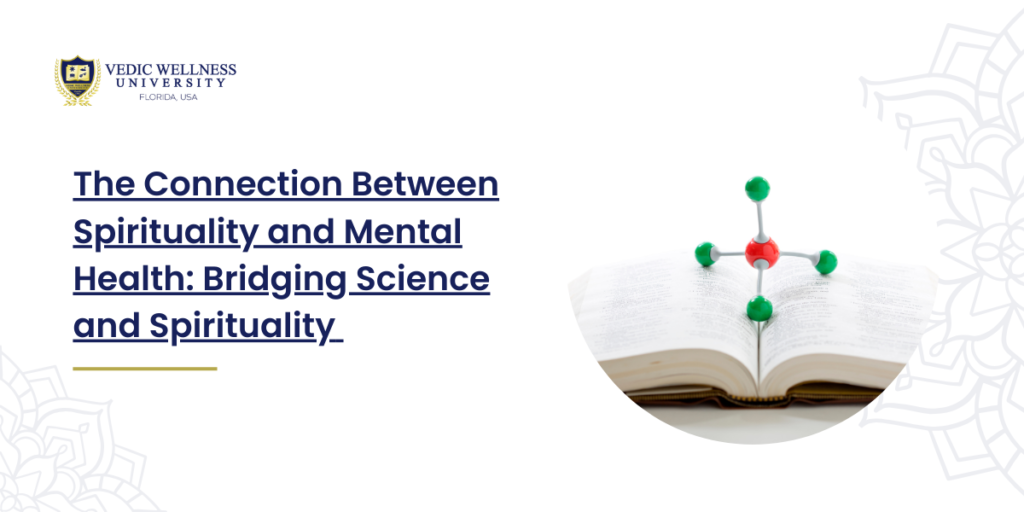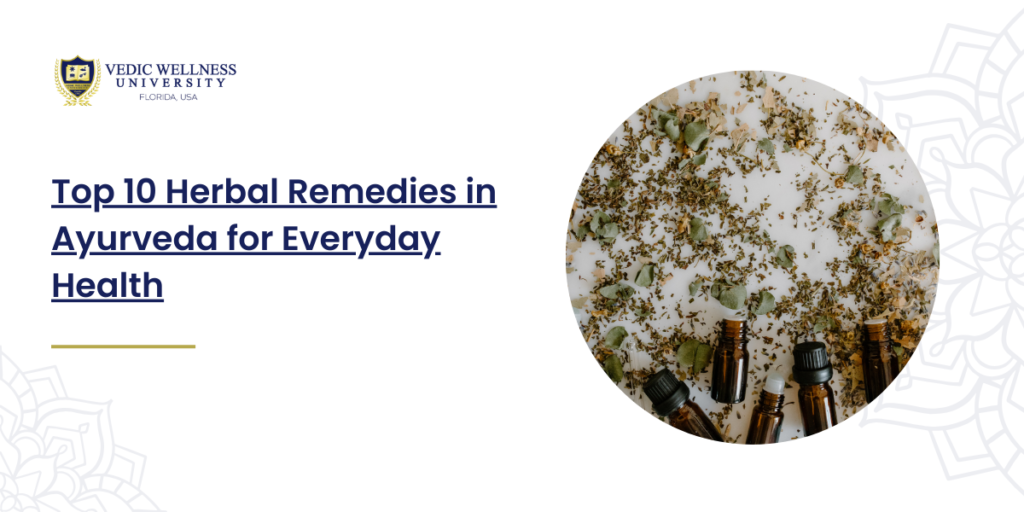How are Ayurveda and Yoga Related

धन्यास्ते यो योगेन जीवनं परिपालयन्ति। स्वशरीरं शरीरं च सृष्टेः स्वात्मनः संस्थानं। (Dhanyaste Yo Yogena Jeevanam Paripalayanti, Swasariram Shariram Cha Srishtheh Swatmanah Sansthanam.) “Blessed are those who sustain their lives through Yoga, recognizing the body as the abode of the soul.” – Hatha Yoga Pradipika Introduction Ayurveda and Yoga are two interconnected branches of ancient Indian wisdom that provide a comprehensive and holistic approach to health and well-being. Both sciences, rooted in the Vedic tradition, focus on harmonizing the body, mind, and spirit to achieve a state of balance and wellness. While Yoga primarily emphasizes physical postures, breathing exercises, and meditation to promote spiritual and mental health, Ayurveda is the science of life that focuses on maintaining balance in the body through diet, lifestyle, and herbal remedies. In recent years, the international community has shown a growing interest in these ancient practices, recognizing the benefits of integrating yoga and ayurveda for holistic health. This blog explores the profound relationship between yoga and ayurveda, detailing their principles, categorizations, and how they work together to foster overall well-being. Understanding Ayurveda: The Science of Life Ayurveda, which translates to “the science of life,” is a 5,000-year-old system of natural healing that originated in India. It is based on the principle that health and wellness depend on a delicate balance between the mind, body, and spirit. Ayurveda is not just about treating diseases; it is a way of life that promotes longevity, vitality, and spiritual awareness. Basic Principles of Ayurveda These principles lay the foundation for integrating Ayurveda with Yoga, as both systems aim to balance the body’s energies and promote holistic health. Yoga: The Path to Union Yoga, which means “union,” is a spiritual and physical discipline that integrates the body, mind, and spirit. It encompasses a range of practices, including physical postures (asanas), breath control (pranayama), meditation (dhyana), and ethical principles (yamas and niyamas). Yoga is not merely a physical exercise; it is a path to self-realization and spiritual growth. Key Aspects of Yoga and Their Connection to Ayurveda By combining these aspects, yoga and ayurveda provide a comprehensive approach to wellness that addresses the physical, mental, and spiritual dimensions of health. The Interconnection of Ayurveda and Yoga Yoga and Ayurveda are often referred to as “sister sciences” because they both originate from the Vedic tradition and share a common goal—achieving harmony and balance in life. When integrated, these two sciences offer a more profound path to healing and self-realization. How Yoga and Ayurveda Complement Each Other Categories of Integrative Yoga and Ayurveda Practices Combining yoga and ayurveda offers a variety of practices that can be tailored to individual needs. These practices are categorized based on their objectives and the specific dosha they target. 1. Vata-Pacifying Yoga and Ayurveda Practices: 2. Pitta-Balancing Yoga and Ayurveda Practices: 3. Kapha-Reducing Yoga and Ayurveda Practices: By following these integrative practices, individuals can experience the full spectrum of benefits that yoga and ayurveda have to offer. Vedic Wellness University: Promoting Yoga and Ayurveda for Holistic Wellness Vedic Wellness University (VWU) is at the forefront of promoting the integration of yoga and ayurveda as essential components of holistic wellness education. VWU offers a wide range of courses designed to cater to students from around the world, making ancient Vedic knowledge accessible to everyone.
The Connection Between Spirituality and Mental Health: Bridging Science and Spirituality

मन एव मनुष्याणां कारणं बन्धमोक्षयोः। (Manah Eva Manushyanam Karanam Bandha Mokshayoh) “The mind alone is the cause of bondage and liberation for human beings.” – Amritabindu Upanishad 2 Introduction The relationship between spirituality and mental health has intrigued scholars, philosophers, and scientists for centuries. As our understanding of mental health evolves, it becomes increasingly evident that a purely scientific approach may not be sufficient to address the complexities of human well-being. Integrating science and spirituality offers a more comprehensive view, acknowledging that mental health encompasses not only biological and psychological factors but also spiritual dimensions. This blog explores the profound connection between spirituality and mental health, emphasizing the synergy between science and spirituality. Drawing from the principles of Ayurveda, Yoga, and Vedic philosophy, we will delve into how spiritual practices can enhance mental well-being and how Vedic Wellness University is committed to promoting these teachings on a global scale. Ayurveda: The Science of Life and Its Relevance to Mental Health Ayurveda, one of the world’s oldest holistic healing systems, provides a unique perspective on mental health by integrating mind, body, and spirit. Known as the “Science of Life,” Ayurveda emphasizes the balance of the three doshas—Vata (air and space), Pitta (fire and water), and Kapha (water and earth)—for optimal health. These doshas not only influence our physical health but also affect our mental and emotional states. Basic Principles of Ayurveda Related to Mental Health These principles form the basis for understanding how integrating science and spirituality can offer a more holistic approach to mental health. The Interplay Between Spirituality and Mental Health Spirituality, often defined as the search for meaning and purpose in life, involves connecting with something greater than oneself. This connection can take various forms, such as meditation, prayer, yoga, or engaging in acts of compassion and kindness. Numerous studies have shown that spirituality can have a positive impact on mental health by reducing stress, anxiety, and depression, and promoting a sense of peace and well-being. How Science and Spirituality Complement Each Other in Mental Health By understanding how spirituality impacts mental health, we can appreciate the need for integrating scientific and spiritual approaches to achieve comprehensive healing. Categories of Spiritual Practices and Their Impact on Mental Health Spiritual practices are diverse and cater to different aspects of mental well-being. They can be broadly categorized based on their objectives and the specific benefits they offer for mental health. 1. Meditation and Mindfulness Practices: 2. Yoga and Pranayama: 3. Chanting and Mantras: 4. Service and Compassion (Seva): By incorporating these spiritual practices, individuals can achieve a harmonious balance between science and spirituality, leading to better mental health outcomes. Vedic Wellness University: Promoting Science and Spirituality for Mental Well-being Vedic Wellness University (VWU) is dedicated to promoting the integration of science and spirituality as a foundation for holistic mental health. The university offers a range of courses that delve into the principles of Ayurveda, Yoga, Spiritual Science, and Vedic philosophy, emphasizing the importance of mental, emotional, and spiritual well-being. Courses Offered by Vedic Wellness University How to Enroll in Vedic Wellness University Courses Prospective students can explore the various programs offered by VWU through the official website. The enrollment process is straightforward, with flexible learning options, expert faculty guidance, and access to comprehensive course materials. Conclusion The connection between spirituality and mental health is an area of growing interest and importance in today’s world. By bridging science and spirituality, we can address mental health in a more holistic and effective way, considering the mind, body, and spirit as a unified whole. Spiritual practices such as meditation, yoga, chanting, and selfless service provide valuable tools for achieving mental clarity, emotional stability, and overall well-being. Vedic Wellness University is at the forefront of this movement, promoting an integrative approach to mental health that combines ancient wisdom with modern science. By offering a range of courses, VWU empowers individuals worldwide to explore the profound connection between spirituality and mental health and embark on a journey of healing and transformation. **ॐ शान्तिः शान्त
Top 10 Herbal Remedies in Ayurveda for Everyday Health

Introduction “सर्वे भवन्तु सुखिनः, सर्वे सन्तु निरामयाः।”(Sarve Bhavantu Sukhinah, Sarve Santu Niramayah)“May all be happy, may all be free from disease.” This ancient shloka encapsulates the essence of Ayurveda, the traditional Indian system of medicine that aims to promote health and well-being for all. Ayurveda, which means “the science of life,” is a holistic approach to health that emphasizes balance in the body, mind, and spirit. Central to Ayurvedic practice are herbal remedies, which have been used for thousands of years to treat a wide range of ailments and promote overall health. Importance of Herbal Remedies in Ayurveda Herbal remedies are a cornerstone of the Ayurvedic healthcare system. They are derived from various parts of plants, including leaves, roots, bark, seeds, and flowers, and are used to balance the body’s doshas (Vata, Pitta, and Kapha) and support the body’s natural healing processes. In Ayurveda, each herb has specific properties that can help in treating diseases, boosting immunity, and maintaining overall health. Herbal remedies are particularly valued for their natural origins and minimal side effects compared to synthetic medications. They are used to treat a wide variety of health conditions, from common colds and digestive issues to chronic diseases and mental health disorders. In addition to treating illnesses, Ayurvedic herbs are also used to enhance physical strength, mental clarity, and emotional stability. Vital Herbs Used in Ayurveda 1. Ashwagandha (Withania somnifera) Properties and Benefits: Ashwagandha, also known as Indian ginseng, is a powerful adaptogen that helps the body cope with stress. It enhances stamina, boosts immunity, and improves overall vitality. Uses: How to Use: Ashwagandha can be consumed as a powder mixed with milk or water, or taken in capsule form. It is commonly found in health food stores and Ayurvedic shops worldwide. 2. Turmeric (Curcuma longa) Properties and Benefits: Turmeric is renowned for its anti-inflammatory and antioxidant properties. The active compound, curcumin, is effective in reducing inflammation and supporting joint health. Uses: How to Use: Turmeric can be added to food as a spice or taken as a supplement in powder or capsule form. It is widely available in grocery stores and herbal shops. 3. Tulsi (Ocimum sanctum) Properties and Benefits: Tulsi, or holy basil, is revered in Ayurveda for its medicinal properties. It is a powerful adaptogen that supports respiratory health and reduces stress. Uses: How to Use: Tulsi leaves can be brewed as tea, used in cooking, or taken as a supplement. It is commonly available in health food stores and Ayurvedic shops. 4. Ginger (Zingiber officinale) Properties and Benefits: Ginger is widely used in Ayurveda for its digestive and anti-inflammatory properties. It aids digestion, reduces nausea, and supports cardiovascular health. Uses: How to Use: Ginger can be consumed fresh, as a tea, or in powdered form. It is readily available in grocery stores and herbal shops. 5. Neem (Azadirachta indica) Properties and Benefits: Neem is known for its antibacterial, antifungal, and antiviral properties. It supports skin health and detoxifies the body. Uses: How to Use: Neem can be used in various forms, including capsules, powders, oils, and soaps. It is available in Ayurvedic and health food stores. 6. Amla (Emblica officinalis) Properties and Benefits: Amla, or Indian gooseberry, is rich in vitamin C and antioxidants. It supports immune function and enhances skin and hair health. Uses: How to Use: Amla can be consumed fresh, as juice, or in powdered form. It is widely available in health food stores and Ayurvedic shops. 7. Brahmi (Bacopa monnieri) Properties and Benefits: Brahmi is a powerful herb for cognitive enhancement. It improves memory, reduces stress, and supports mental clarity. Uses: How to Use: Brahmi can be taken as a supplement in capsule or powder form, or brewed as tea. It is available in health food stores and Ayurvedic shops. 8. Triphala Properties and Benefits: Triphala is a combination of three fruits: Amla, Haritaki, and Bibhitaki. It supports digestive health and detoxification. Uses: How to Use: Triphala is commonly taken as a powder mixed with water or as a capsule. It is available in Ayurvedic and health food stores. 9. Shatavari (Asparagus racemosus) Properties and Benefits: Shatavari is known for its benefits in women’s health. It supports reproductive health, balances hormones, and enhances lactation. Uses: How to Use: Shatavari can be taken as a powder mixed with milk or water, or as a supplement in capsule form. It is available in health food stores and Ayurvedic shops. 10. Licorice (Glycyrrhiza glabra) Properties and Benefits: Licorice is known for its soothing properties. It supports respiratory health, soothes the digestive tract, and reduces inflammation. Uses: How to Use: Licorice can be consumed as tea, in powder form, or as a supplement. It is available in health food stores and Ayurvedic shops. Top 10 Herbal Remedies in Ayurveda 1. Ashwagandha for Stress and Anxiety Where to Find: Ashwagandha is widely available in health food stores, Ayurvedic shops, and online retailers. How to Take: Diseases it Can Cure: Other Details: Ashwagandha’s adaptogenic properties make it an excellent remedy for reducing stress and anxiety. It also supports overall vitality and strengthens the immune system. For best results, it is recommended to take Ashwagandha daily, preferably in the evening. 2. Turmeric for Inflammation and Joint Health Where to Find: Turmeric is commonly found in grocery stores, health food stores, and online retailers. How to Take: Diseases it Can Cure: Other Details: The active compound in turmeric, curcumin, is known for its potent anti-inflammatory and antioxidant properties. Regular consumption of turmeric can help reduce inflammation, support joint health, and improve digestive function. It is often recommended to take turmeric with black pepper to enhance its absorption. 3. Tulsi for Respiratory Health and Immune Support Where to Find: Tulsi is available in health food stores, Ayurvedic shops, and online retailers. How to Take: Diseases it Can Cure: Other Details: Tulsi, also known as holy basil, is revered in Ayurveda for its adaptogenic and immune-boosting properties. It supports respiratory health, reduces stress, and enhances digestion. Tulsi tea can be consumed

